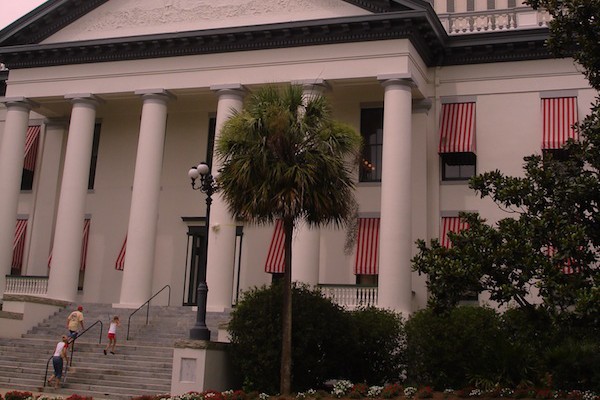Last week marked the start of Florida’s two-month Legislative Session.
Whether that fills you with excitement or dread (or boredom), a number of big issues face your state lawmakers this year. Fear not. Keep It Local, Florida is proud to publish our first annual Legislative Digest, “The Short & The Sweet.”
This one isn’t just for the policy wonks.
So, without further adieu, here are the big issues affecting your local communities this Legislative Session:
Tax Reform
First, the background…
… In 2001, the Florida Legislature replaced and consolidated seven different state and local taxes and fees into a single tax called the Communications Services Tax (CST)
… Today, the CST is a main source of general revenues for Florida’ local communities, funding a number of key public services such as local roadways, bridges, law enforcement and recycling, to name a few.
… Local governments also collect a sales tax on commercial rental property, which functions much like the sales tax individuals pay—except this applies to owners of commercial property.
So what’s going on now?
… Lawmakers have pledged to cut taxes this Legislative Session.
… Some proposals to would trim revenue for local communities; including cuts to or elimination of the sales tax on commercial rental property.
… This tax break would benefit the owners of commercial rental property.
Our take …
… Two years ago, Florida voters rejected Amendment 4 — a measure that would’ve resulted in big tax breaks for snowbirds, at the expense of local homeowners.
… We think Tallahassee should listen. Tax cuts should benefit as many Floridians as possible—not just certain industries or interests.
Municipal Pension Reform
First, the background …
… Florida’s local police and fire pensions are partially funded by something called the Insurance Premium Tax, as well as direct contributions made by cities.
… But in 1999, the Florida Legislature changed how city governments contribute to these plans.
… Now, Florida’s cities are required to use many additional revenues from the Insurance Premium Tax to fund new benefits for local police and fire unions.
… This has cost local communities more than $520 million in new “extra” benefits for unions since 1999.
So, what’s going on?
… In 2012, state authorities began giving cities greater flexibility when it comes to managing their local pension systems.
… This development has allowed Florida cities to shore up the solvency of their pension plans, rather than plowing tax dollars into “extra” benefits.
Our take …
… It’s time to respect home rule and fiscal sanity.
… Lawmakers should adopt legislation that allows municipalities to negotiate with their local unions and fund employee benefits at appropriate levels.
… Our local taxpayers can’t afford to constantly create and fund new benefits for local pensions. That’s unsustainable.
Juvenile Justice
Here’s the background …
… In 2004, the Legislature mandated that counties share in the costs for juvenile secure detention.
… At that point, county tax dollars became the primary revenue source for the Department of Juvenile Justice’s (DJJ) juvenile detention facilities.
… Four years later, the Department of Juvenile Justice (DJJ) began overbilling local communities for the juvenile detention costs.
So, what’s going on?
… Several counties appealed the DJJ’s practices and won.
… Since then, the DJJ has revised its approach, resulting in reduced costs to local communities to the tune of roughly $40 million.
Our take …
… Florida’s local taxpayers shouldn’t be forced to pickup the tab for the state’s administrative mistakes or its inconsistent practices.
… We’re living in the Information Age. It’s time for a change.
… We need a streamlined cost-sharing model will trim needless bureaucracy and improve local efforts to prevent, treat and rehabilitate troubled juveniles.
Want to weigh in on this year’s Legislative Session? Take our 2014 Session poll!

